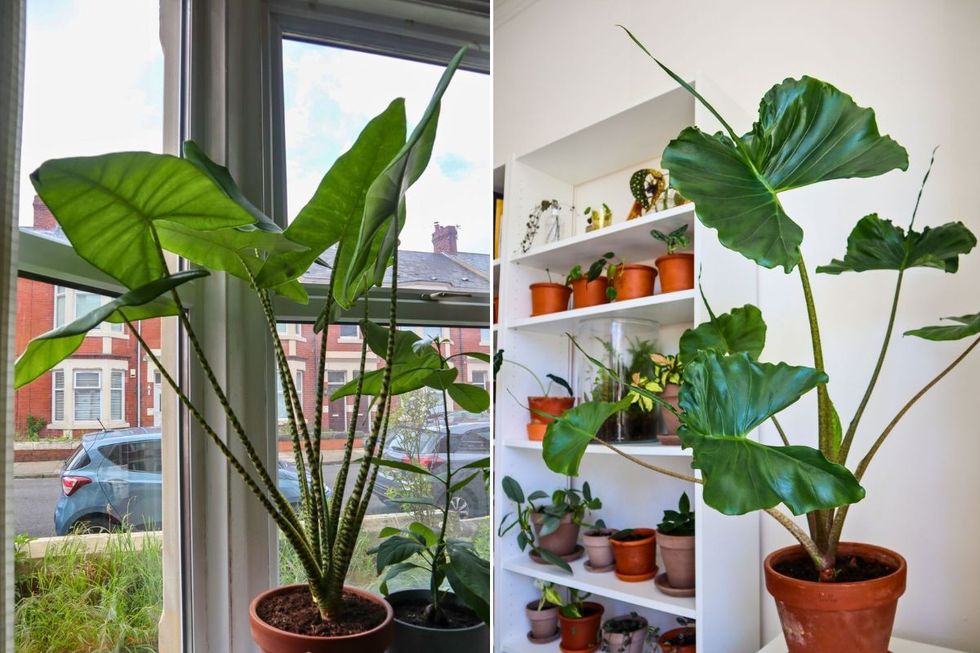Houseplants are a great addition to any household
GETTY
A plant enthusiast has shared their top hack for achieving lush and oversized foliage
Don't Miss
Most Read
Trending on GB News
Many factors impact the health and growth of indoor greenery, but the importance of light and water is undisputed.
When it comes to tropical species, however, needs can differ significantly from one plant to the next.
The founder of Terrarium Tribe, an online terrarium supplies store and plant blog, has achieved remarkable success in growing unusually large plants, particularly Alocasia.
According to Dan, the key findings focus on maintaining high humidity levels for optimal growth.

Providing ample water can lead to impressive plant growth
Terrarium Tribe
The plant enthusiast told GB News: "Over the years, we've grown some pretty Jurassic-sized plants at home, and we believe it's high humidity that's the key.
"We averaged around 75 per cent humidity in our office, probably due to the sheer density of plants in there. Everything in that room grew well."
The Terrarium Tribe representative said he found success with Alocasia by watering them liberally.
"We watered them liberally as they always seemed thirsty, and they seemed to do well pot-bound, too," he said.
Creating a humid environment and providing ample water could lead to impressive plant growth.
Home gardeners can potentially achieve similar results by replicating these methods.
There are additional factors to consider, however. One green-thumbed enthusiast recently reported a remarkable transformation in leaf size by adjusting the pH of the water used for his plants.
LATEST DEVELOPMENTS

Houseplants need a combination of factors to produce giant leaves
GETTY"After watching a video on the importance of having the correct pH or watering with the correct pH, this is the result of mine," explained houseplant aficionado @Everythingplants.
“I still can’t believe how much it’s sized up, it’s almost a perfect leaf, it just has a couple of blemishes, here at the top.”
According to the National Institute of Health, pH significantly affects flower quality and other cellular processes.
The pH levels indicate the acidity or alkalinity of soil and dictate the availability of nutrients.








